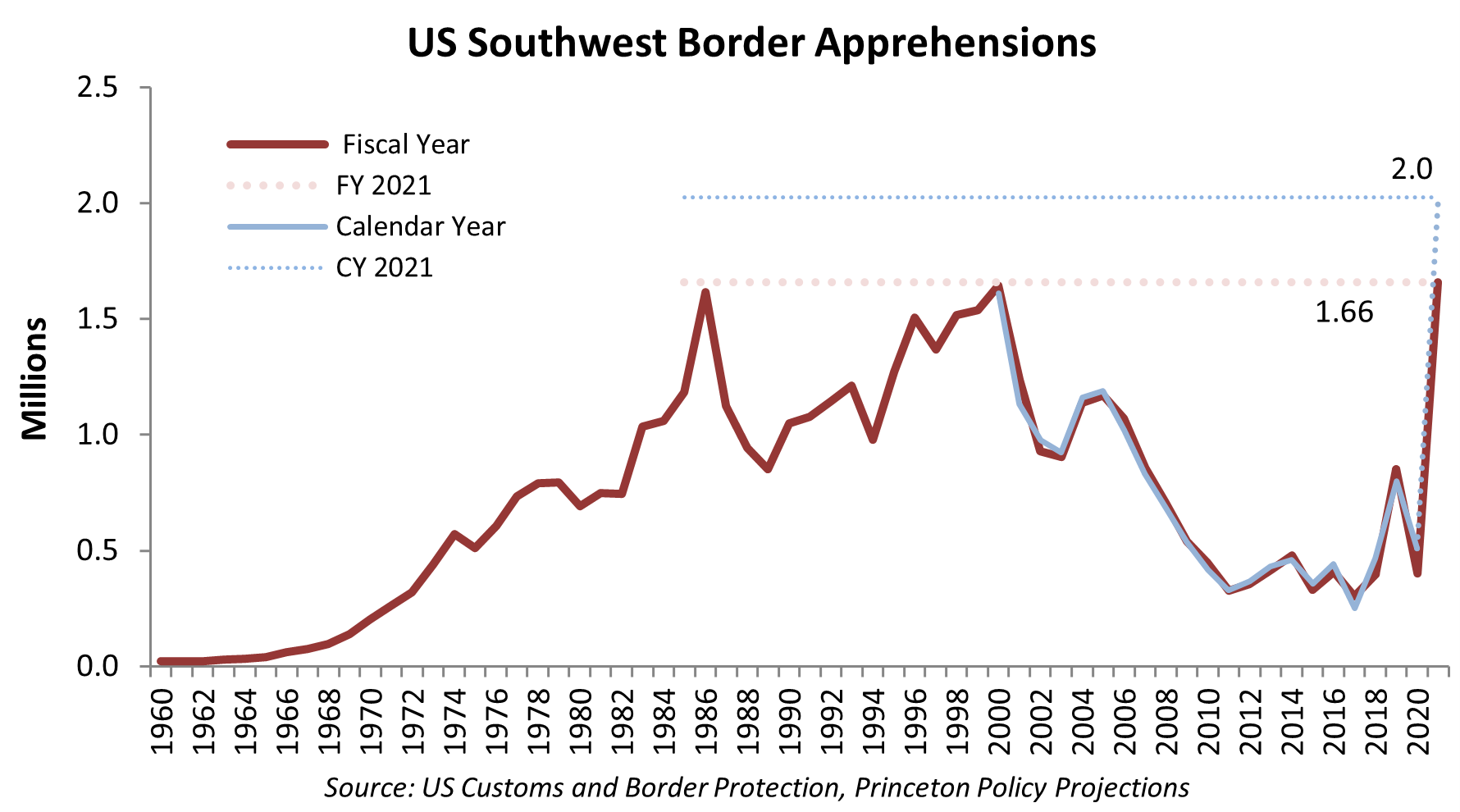Customs and Border Protection yesterday reported 185,515 apprehensions at the US southwest border for the month of September. This was 10,000 fewer than the previous month but still twice the level of the next highest September, that of 2000 under the Clinton administration.
With this, the Biden administration now holds the record for the greatest number of fiscal year apprehensions at the southwest border in US history, 1.658 million versus 1.643 million in 2000. This comparison will only deteriorate to the end of the year, with our current forecast putting calendar year apprehensions at 2.0-2.1 million, 400,000-500,000 more than the next closest year.
If there is anything positive to report, it is that inadmissibles -- those presenting themselves without proper documentation at official crossing points -- have declined dramatically in September, falling by more than half to 6,486, a level low even by historical standards. This suggests a material change in Customs policy which has largely curtailed the opportunity for undocumented migrants to cross into the US at official entry points.
It is hard to overstate how devastating the administration's apprehensions record is for the prospects of long-term undocumented immigrants in the US. I visited at the Heritage Foundation before the pandemic to lobby for a market-based approach to end illegal immigration. I was very kindly received and told that Heritage would be willing to consider alternatives with one exception: "No amnesty." This is understandable. The last amnesty, resulting from the Immigration Reform and Control Act of 1986 (IRCA), brought a flood of illegal immigration and solved exactly nothing. Conservatives correctly felt duped by IRCA and swore they would never be suckered into an amnesty again. And this is where the matter has stood for now 35 years.
Still, the Great Recession and the passage of time offered a glimmer of hope that at least DACA recipients, and perhaps some additional long-time undocumented residents, might be provided legal status. The population of the undocumented had been falling modestly since 2008 and the risk of a surge in illegal immigration looked like a worry of the past. Beyond the Democrats, there was sympathy for granting legal status by what may be called the Romney Faction: Republican senators Romney, Collins, Murkowski and a few others. Now those hopes are dashed. No sane Republican would even want to discuss any kind of amnesty, much less propose it, before the 2022 elections at a minimum. And those on the hard right will find it all too easy to retreat to the redoubt of 'no amnesty'.
For those of us interested in a balanced solution using the textbook, tried-and-true method, this is something of a disaster. Closing the border to illegal immigration with a market-based approach is comparatively trivial. On the other hand, ending illegal immigration in aggregate is hard without providing legal status to the vast majority of undocumented Latino immigrants in the US. Unfortunately, this pool now includes both the Trump surge of 2019 and the current Biden tsunami. Would these groups be included in any amnesty? It seems unlikely.
Alternatively, recent arrivals could be expelled. This would require an internal US enforcement effort unlike any seen in the last half century. Perhaps that will be the price: A wide scale round-up and expulsion of those apprehended at the border from the start of 2019 in return for some sort of legal status for long-term undocumented. But once the internal apprehension machinery is in place, well, it can be employed more broadly.
The administration's open borders policy is an unmitigated disaster, most particularly for the long-term undocumented who, in our view, warrant legal status sufficient to work without fear of apprehension. Repairing the political damage may take a decade or more.


